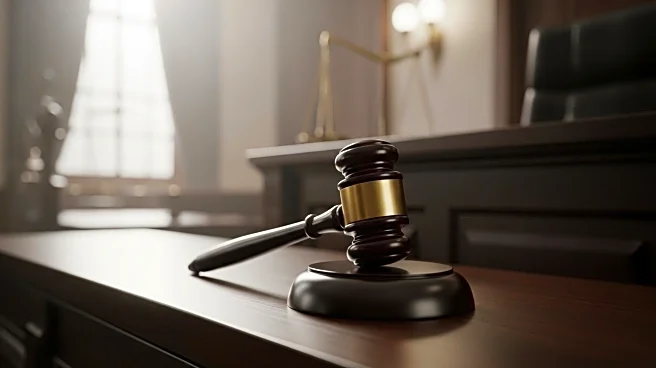What's Happening?
US District Judge Deborah Boardman has faced backlash following her sentencing of Sophie Roske, charged as Nicholas John Roske, to just over eight years for the attempted assassination of Supreme Court Justice Brett Kavanaugh. Critics, including Attorney General Pam Bondi, argue that the sentence is too lenient, given the sentencing guidelines suggested a range of 30 years to life due to a terrorism enhancement. The sentence is expected to be appealed by the Justice Department, as Bondi reiterated during a Senate Judiciary Committee oversight hearing. The case stems from Roske's arrest near Kavanaugh's home in 2022, following the leak of a draft opinion overturning the constitutional right to abortion. Judge Boardman credited Roske for calling the police and abandoning the plan, which influenced the sentencing decision.
Why It's Important?
The sentencing has sparked a debate over judicial discretion and the adequacy of punishments for threats against federal judges. Critics argue that a lenient sentence may not serve as a sufficient deterrent, especially amid rising threats to the judiciary. The case highlights the challenges in balancing judicial independence with public safety concerns. The potential appeal could set a precedent for how similar cases are handled in the future, impacting the judiciary's approach to sentencing in cases involving threats to public officials.
What's Next?
The Justice Department's appeal of the sentence will be reviewed by the US Court of Appeals for the Fourth Circuit. The appeal may focus on whether Judge Boardman made erroneous factual findings or improperly balanced sentencing factors. The outcome of the appeal could influence future sentencing decisions in cases involving threats to federal judges and public officials.
Beyond the Headlines
The case raises broader questions about the protection of federal judges and the role of judicial discretion in sentencing. It also touches on issues of gender identity, as Roske is a transgender woman, which may have influenced considerations during sentencing. The case underscores the importance of maintaining respect for the rule of law and the independence of the judiciary.









